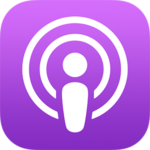 In recent weeks, there have been increasing reports of podcasters waking up to find that Apple has removed their shows from iTunes/ Apple Podcasts. Given that Apple Podcasts is far and away the biggest podcast directory, and that many other “podcatchers” (podcast listening apps) pull their data from iTunes, it goes without saying that you don’t want to lose your spot in Apple’s directory.
In recent weeks, there have been increasing reports of podcasters waking up to find that Apple has removed their shows from iTunes/ Apple Podcasts. Given that Apple Podcasts is far and away the biggest podcast directory, and that many other “podcatchers” (podcast listening apps) pull their data from iTunes, it goes without saying that you don’t want to lose your spot in Apple’s directory.
Apple is removing podcasts for “keyword stuffing.” In addition to being a directory, Apple Podcasts is also a search engine. Many podcasters know that one of the best ways to get new listeners to discover their shows is to ensure that they come up in the directory’s search results when people look for certain terms. Because Apple reportedly does not index show descriptions — only the show title, author, and episode titles — podcasters shove keywords into these indexed tags to increase the likelihood that listeners will find their shows.
One popular way to do this is to use a colon in the show’s title followed by a brief description. For example: “Yummy In My Tummy: Homemade Soup Recipes.” This allows the podcaster to include the keyword “soup” in the show title, which is what a fan of this show is likely to search for. This podcast might also include the author tag, “Sara Jones of the Chicago Soup Store,” in case anybody searches for the name of her employer. Until now, I encouraged podcasters to use these techniques to help them find relevant audiences. However, Apple is now cracking down on this type of keyword stuffing.
How do you avoid having your podcast removed? I asked a few experts for their advice. Here’s what they said:
1. Stick to your show title.

“Podcasters can avoid being de-listed by keeping their show titles titles, not extended descriptions,” says Raw Voice / Blubrry CEO Todd Cochrane. “If you have a dash or colon in your show’s title, you’re likely to be examined.”
Rob Walch, VP of Podcaster Relations at Libsyn, agrees. “Stop putting in dashes and colons followed by keywords; that is a huge red flag,” says Walch. “Be direct with your title. Don’t get cute or clever. Cute and clever are horrible for search in Apple Podcasts.” (Unfortunately, this doesn’t bode well for my podcast about Detroit, The D Brief. While it routinely gets compliments for having a clever name, it doesn’t perform well when searching for “Detroit” in Apple Podcasts.)
Some podcasters have taken keyword stuffing to a whole other level by name-checking famous people in their podcasts’ titles even though these people are never actually interviewed. For example, a title might be “Fantastic Leaders: Conversations with People Like Tim Ferris, Seth Godin, and Zig Ziglar.” This is an obvious attempt to leverage the names of these famous people to drive downloads, and it’s precisely the type of spammy technique that Apple is trying to reign in. If your podcast title contains words like “covering,” “including,” or “similar to” followed by a laundry list of keywords, your show is at risk. “That just screams, ‘Kick me out!'” says Walch.
2. Use only a first name and last name for the Author.

“Companies putting their names in the Author area will likely need to reconsider this practice,” says Cochrane. For example, in my podcast featuring interviews from the Worldwide Radio Summit, I listed the Author as “Seth Resler of All Access.” This way, if anybody searched for the name of the popular radio industry website, they would find my podcast. However, in the wake of Apple’s crackdown, I have changed the Author tag to simply, “Seth Resler.”
3. Use common sense.

“Not everything is black and white, so just use common sense,” says Cochrane. As an enormous company, Apple is not particularly responsive to the individual needs of podcasters who are receiving the benefits of its popular directory for free — there’s just too many of them; if you try to skirt the rules, you’re at your own risk. “Stop asking when Apple is going to fix this or what Apple can do to help you. It’s a waste of your time, energy, and resources,” says Elsie Escobar, Co-Founder of the She Podcasts community. “Create a strategy for marketing your show that transcends specific platforms but respects the desired practices for each platform. “
It’s a good time to review your podcast’s tags and make adjustments. As Escobar points out, this type of housekeeping “is part of our daily responsibility as podcasters. You either take it on or you don’t.”
More Digital Tips
- What Radio Broadcasters Need to Know About Facebook and Apple’s Podcasting Announcements
- Radio Program Directors Should Know These Digital Stats for Their Stations
- How a Content Calendar Can Improve Your Radio Station’s Blog
- 7 Common Mistakes Radio Stations Make With Their Email Marketing
- 5 Pop-Up Ads Your Radio Station Should Have on Its Website
- A Simple Digital Treat to Thank Your Radio Listeners This Thanksgiving - November 13, 2023
- Interview Questions When Hiring Your Radio Station’s Next Digital Marketing Manager - November 6, 2023
- A Radio Conversation with ChatGPT: Part 2 – Promotions - October 30, 2023





Seth, thank you for this. How does one go about restoring a show that has been removed?
First – you need to edit your show title and Author tags to clean it up.
Once you do that – then contact Apple with your Podcast ID number and your RSS feed via the Apple support form:
https://itunespartner.apple.com/en/podcasts/overview
(Look for the link – “contact us” – lower right corner)
Apple support folks will then help you get your show back and live.
The Podcast ID number is the unique ID number for your show in Apple Podcasts / iTunes – for example our show the Feed – has this URL in Apple Podcasts / iTunes:
https://itunes.apple.com/us/podcast/the-feed-the-official-libsyn-podcast/id668413144?mt=2
Our ID = 668413144
Regards,
Rob W
You mean “colon”, not “semi-colon” There’s a difference. You might correct that in the article, then delete this comment.
Good catch& David( thanks? I fixed it~ If you see any other punctuation errors* please let me know]
Great post. You have shared all the information very nicely here. As I am new in this field, I gather the most useful ideas here.
Aloha- I am seeing several music/DJ podcasts on Apple that have other people’s music like Group Therapy Radio, or R3HAB. How is that possible without paying huge fees ? Thanks!